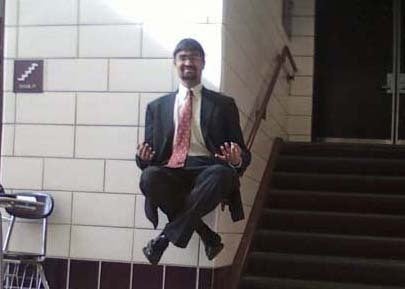
Lamar Hill, better known as L.A. Sunshine of the pioneering rap group Treacherous Three, was 15 when the group was formed. The New York Times has run a profile on his search for a full time job while participating in a back-to-work program and volunteering for a variety of causes. At 50, he might not have the complete stability he has been searching for yet, but he has turned his life around through a myriad of problems.
While Sunshine experienced a rough childhood that included being sexually abused at age seven, he managed to garner attention with his group as they began to get songs played on the radio and even appeared in the movie Beat Street. However, he soon found himself forced to deal with the shadiness of the industry, as he wasn't always receiving money for his efforts. This led to struggles with depression, which was eventually compounded by a cocaine addiction. Even while touring the world alongside Kool Moe Dee, his addiction led him to visit major cities without having a recollection of what they looked like.
Finally, after years of living on the streets and in the stairwells of the Manhattanville projects, Sunshine was able to turn his life around by participating in programs designed to empower youth. He organized basketball tournaments and served as a teacher's aide in several different programs, and found the work to be "therapy" for his addiction.
Unfortunately, he ended up having to deal with issues of unpaid child support and a lawsuit from the Unemployment Insurance Agency Board. He was facing eviction and lost his job. However, with the help of the Dunlevy Milbank Center in Harlem, he was able to pay off back rent and utilities and come up with funds for food and transportation. Now he is looking to progress even further.
As for his foray into hip-hop back in the day, he does not appear to be bitter about the lack of money or even from lack of respect from the current generation of hip-hop artists. Instead, he offers a humble perspective. “Somebody has to be the roots of the tree,” he said. “Without the roots, that tree doesn’t stand.”
[via New York Times]
RELATED: Rap Songs From the Past Decade That Sound Like the '80s
RELATED: Prince Paul, Ralph McDaniels, Mike Dean & More Discuss Hip-Hop's "Golden Year" on NPR's Microphone Check

